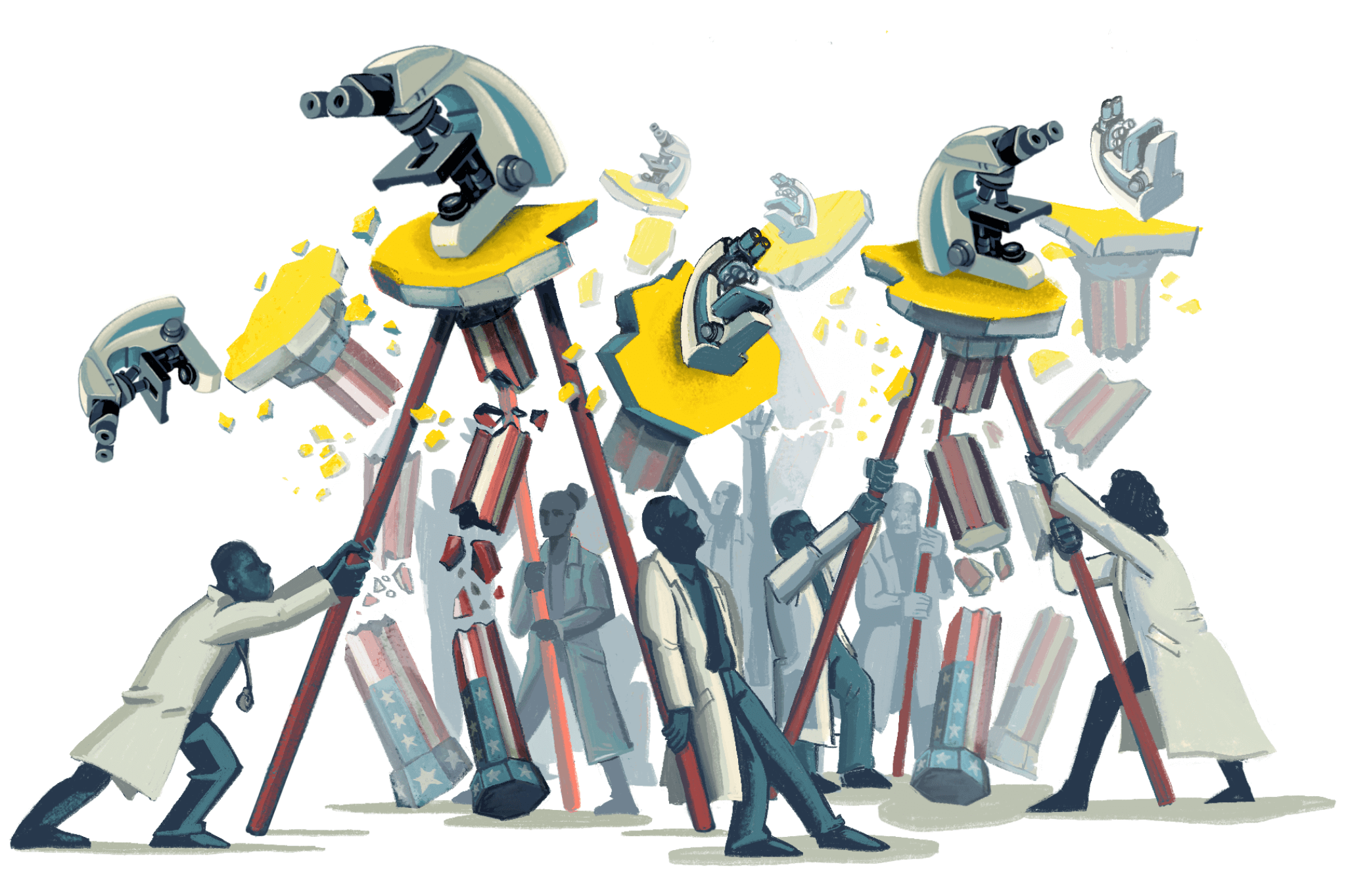
KAMPALA, UGANDA — As Ebola resurfaced in Uganda earlier this year, people who were identified as close contacts of infected patients often fled from health workers to avoid quarantine. Until March, Peter Waiswa, an associate professor at Makerere University, and his team of 100 people researched why this happens, among other questions on human behavior in health crises. They wanted to change how health programs are designed, so people would participate without fear.
Now, their ambitions are out the window, and for some, so are their jobs.
The five-year collaboration that included Uganda’s Makerere University, the University of California San Diego, and other global partners ended after United States President Donald Trump issued an executive order on Jan. 20, cutting off nearly all US foreign aid.
“The team was emotional. Many people were uncertain what to do next because of the partnership and teamwork that had been built and the value of the research,” Waiswa says.
This disruption is just one example of the ongoing consequences of the pullout of US aid, much of which was disseminated through the US Agency for International
Development. In 2024 alone, the US government funded 283 research-related programs in Africa, most through USAID, totaling over US$240 million.
Uganda had 13 such programs, amounting to nearly US$700,000 in 2024.
Across the continent, the collapse is devastating — including in the field of health research. But it’s not just health researchers who are affected. People were already
- New perspectives: Role of private sector in resource mobilisation
- Sungura in Macheso’s safe hands
- New perspectives: Role of private sector in resource mobilisation
- HCC considers cancelling ZimPhos contract
Keep Reading
participating in clinical trials, and others’ lives could have been transformed by the research findings, Waiswa says.
“If you suspend a study suddenly — [there are] people who have been given implants for HIV control, and we can’t trace them and remove them,” Waiswa says.
“It’s absurd.”
Dr. Andrew Kambugu, executive director at Infectious Diseases Institute in Kampala, was working on a multi-country project to integrate mental health support into the treatment of tuberculosis, which in 2022 killed close to half a million people in Africa alone.
Funding for that project was cut too, just as Kambugu and his team were about to start data collection.
“We received a letter saying it is not in line with their national interests,” he says, referring to communications noting US priorities.
The program could have benefitted generations, he says, but now the funding they have already received needs to go back to USAID.
Among those the research could have helped is Enock Tibihwa. In 2024, he was diagnosed with tuberculosis. When his neighbors found out, they distanced themselves from him and his family.
“They thought they would get infected,” he says. “I suffered depression.”
In his community, tuberculosis is thought to be linked with HIV and poverty, he says.
He temporarily stopped his treatment, and his condition worsened. He’s now back on tuberculosis medication, thanks to local efforts, but believes that mental health services would be useful to many tuberculosis patients.
Some of the damage caused by the abruptly pulled USAID funding could have been avoided had African leaders followed through on their 2006 pledge to increase spending on research to at least 1% of their gross domestic product. Many of the countries, including Uganda, have yet to scale up domestic funding.
About 57% of Uganda’s funding for research and development comes from international partners, according to a 2019 report from the United Kingdom
government. The Ugandan government funds very little. In 2022, only 0.14% of the country’s GDP went to research.
In comparison, in 2021, the UK spent 2.9% of its GDP on scientific research, while the United States spent 3.45%.
Another problem, aside from disruptions to the work, is that governments reliant on foreign funding have little control over research, with major donors shaping the global health agenda. Diseases such as elephantiasis, bilharzia, river blindness and many others are overlooked, says Kambugu.
“Health research should be dictated by data: What is killing us most?” he says.
This misalignment in priorities for health research is a global problem. Funding for communicable diseases outweighs that of noncommunicable diseases, according to the 2019 study published in the Journal of Medical Economics. Mental health is another area that’s almost completely ignored by international donors.
If the lack of expenditure on noncommunicable diseases in countries like Uganda continues, it could result in out-of-pocket health care costs pushing nearly 150 million people around the world into poverty — creating a serious long-term sustainability issue, even for wealthier nations, according to the study.
The USAID funding freeze could be an opportunity for African governments to shift things by funding research that benefits their countries, says Kambugu. But there is
a reason this isn’t a priority for some yet, he adds. Many are dealing with complex issues. Long periods of civil war, for example, have forced some governments to shift their priorities to respond to emergencies.
Countries like South Africa, Egypt and Kenya are making significant progress with domestic funding. Egypt has hit the target, spending 1.02% of its GDP on research in
- And Kenya and South Africa are close, investing about 0.8% and 0.61%, respectively.
The goal is possible, if only governments stopped wasting money, Waiswa says.
“A lot of expenditure goes into [the elections]. If we did the same for science — even for things we are not able to do, we can bring experts to come here and do it for us,”
he says.
- Apophia Agiresaasi is a Global Press Journal Reporter-in-Residence based in Kampala, Uganda.










